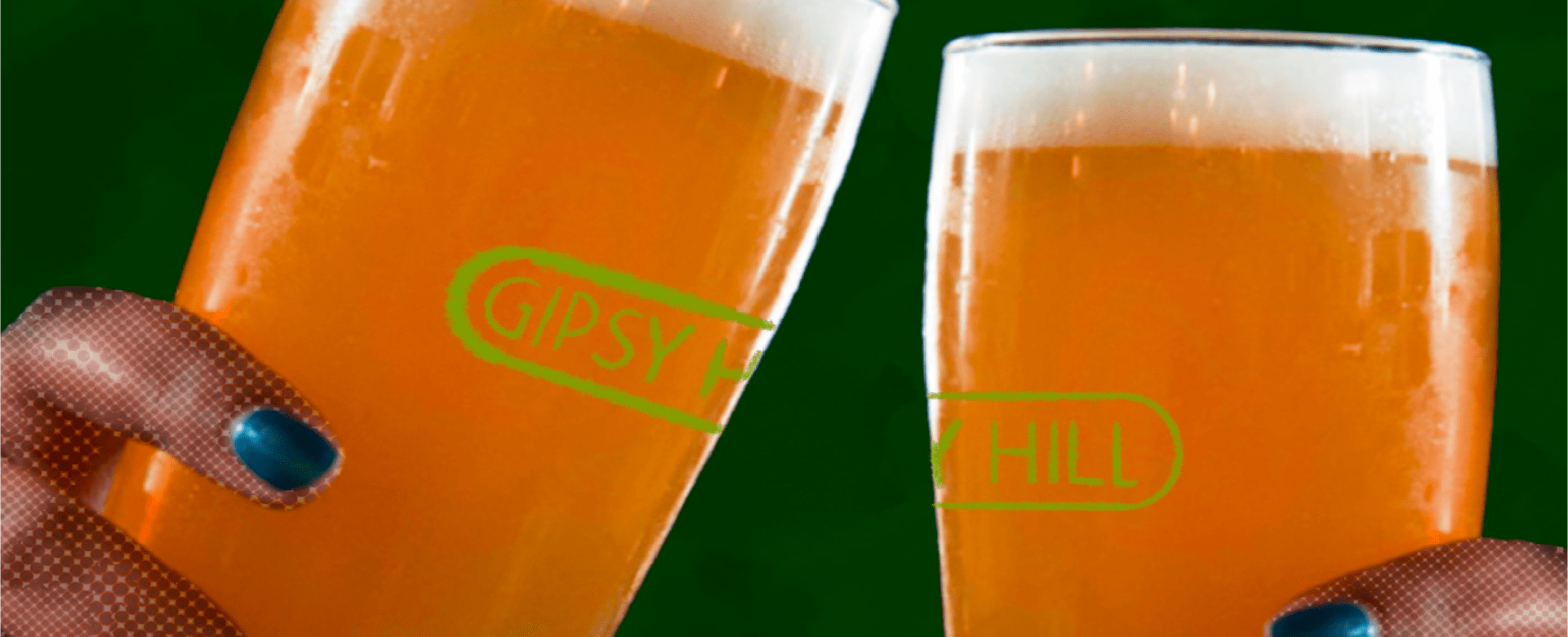



Have you ever questioned your daily beer consumption?
It is not part of our cultural norm to drink beer on a daily basis as Indonesians. Moreover, In my 30s, I made an effort to cut back on my alcohol use, and now I consider myself a light drinker. Before, I used to have a beer once a week, but now I limit myself to once every month, usually on the weekends when I'm hanging out with loved ones.
The research by Statista shows, American beer drinkers typically consume about 68 liters (18 gallons) of beer annually. This equates to approximately 10 ounces of beer per day, or roughly one six-pack per week [1].
Then, how many carbon footprints did the beer you drank leave behind?
The Guardian reports that the carbon footprint of a pint of locally brewed cask ale at the pub is 300g CO2, whereas that of a pint of shop-bought bottled beer or foreign beer at the same establishment is 500g CO2. The store's bottled beer, even after significant transportation, can leave a carbon footprint of up to 900g CO2e per pint [2].
I have no idea how a brewery can help decrease or eridicate its carbon footprint, but this brewery has done it.
Located in the middle of South London's busy economic district, a brewery that is revolutionizing the industry is permeated by the aroma of freshly brewed beer and the steady buzz of fermentation.
Gipsy Hill Brewing Co.
We welcome you to our brand-new section, Circulatory
Come explore with me, Mikha Suryanto, all the things the companies or communities have done to pursue circularity.
The Gypsy Hill Brewing Co. is, in my opinion, a one truly unique business.
Founded in 2014 by Sam and Charlie, who met at the craft beer institution The Rake in Borough Market, the brewery is known for producing full-flavoured, moreish brews with a focus on quality.
With an annual output of more than fifty limited-edition brews and collaborative efforts, Gipsy Hill Brewing Co. places a premium on creativity.
Throughout every phase of its history, Gipsy Hill Brewing Company has made unconventional decisions. Gipsy Hill Brewing Company will be proud of itself by the year 2021 for being an employee-owned business that is committed to brewing with integrity and giving back to the community [3].
Gipsy Hill is also well known for its commitment to the environment. It stands as a model for creativity, circularity, and environmental responsibility in the craft brewing industry. This brewery has risen to the top of the carbon-negative beer industry by prioritizing quality, community, and sustainability [4].


Gipsy Hill Brewing Co. brings more than just a refreshing sensation when you drink it, it also gives you faith in beer's ability to contribute to the environment. This is a step towards their goal of reducing the environmental impact of their whole brewing process, from grain to bottle.
This dedication marked the partnership with Wildfarmed.
It is the mission of Wildfarmed, an organization that uses regenerative farming techniques, to provide an environmentally friendly alternative to the present-day industrial food system. Regenerative wheat farming is beneficial for the environment and consumers alike because it yields nutritious flour of superior quality. As a result of their regenerative farming practices, Wildfarmed is able to reduce soil erosion, increase carbon sequestration, and ultimately reduce atmospheric CO2 emissions [5].
Wildfarmed is where Gipsy Hill Brewing Co. gets its base barley. Two beers, Swell Lager (with a carbon footprint of -40gCO2e per pint) and Trail Pale Ale (with a carbon footprint of -30gCO2e per pint), are made from this base grain, while many craft IPAs start at 500g CO2e. More carbon dioxide is preserved in the air by these beers than they release [6].
Not Just a carbon footprint, reducing the amount of material footprint in the brewhouse is another goal of Gipsy Hill Brewing Co.'s in-house techniques for restoring and reusing waste hops.
The wasted hops, the hop material that was removed after fermentation from an earlier batch of beer, were usually thrown away. But the brewers at Gipsy Hill have solved the problem of how to save the hops from used beer and put them to use once again.
On the hot side of the brewing process, the hops are reused, enabling the brewery to extract more smells and flavors from the hops without adding new hops. By reusing hops instead of discarding them after only one usage, this novel method cuts down on waste and emissions of greenhouse gases.


Every strategic move made by Gipsy Hill Brewing Co. over the years seems to have honed its unique selling point. Environmentally and financially, Gipsy Hill Brewing Co.'s dedication is a win-win.
Yes, Gipsy Hill Brewing Co. seems to have a firm grasp of the behavior of consumers. They know it well.
There is a stereotype that Generation Z widely recognized as "the most disruptive generation ever". In my humble opinion, no generation that came before them has demonstrated the same level of interest in any form of global problem.
They are well-known for their heightened concern for global issues. 50% of these young generations cut back on their spending, even more, 45% of them stopped buying certain brands due to ethical or environmental concerns, indicating that they are the most environmentally conscious generation [7]. Younger generations are more driven than older ones to mitigate environmental issues, according to the study by Deloitte.
Gipsy Hill intelligently addressed this cultural trend.. Apparently, Gipsy Hill Brewing Co. sees there seems to be a correlation between environmental concerns and the craft beer market's increasing trajectory, which is driven by a preference for smaller, independently owned brewers and a fondness for unique artisanal brews [8].
As the younger generations grow more concerned about their environmental impact, carbon and material footprint deficits beer is a unique selling advantage for breweries. An environmentally conscious beer with a delicious flavor has been produced by Gipsy Hill Brewing Co., which has jumped on this bandwagon.
Their business model highlights the significance of minimizing their impact on the environment and supporting local initiatives, reflecting the brewery's dedication to circularity and sustainability.
Another aspect that the brewery has embraced is the communal aspect.
Brewery tours and tastings are available, and the taproom and micro-bar provide a selection of food and fresh brews. In addition to supporting neighborhood projects, Gipsy Hill Brewing Co. is actively involved in environmentally conscious endeavors.
Being employee-owned further highlights the brewery's dedication to its employees and the community.
When it comes to craft beer, Gipsy Hill Brewing Co. is at the cutting edge of innovation. Their carbon negative beer can tell they care about quality, innovation, circularity, and sustainability
Watching the brewery expand and change will be fascinating since it will reveal how they are always thinking outside the box when it comes to brewing.


[1] Jan Conway, & 14, D. (2023, December 14). U.S.: Beer market revenue 2014-2027. Statista.
[2] Guardian News and Media. (2010, June 4). What’s the carbon footprint of ... A Pint of beer? The Guardian.
[3] Brewing better: The evolution of London’s Gipsy Hill. The Brewers Journal. (2020, January 3).
[4] Beveragedaily.com. (n.d.). Gipsy Hill brewery debuts offset-free carbon negative brews: “revolutionizing our supply chain has really made the difference.” beveragedaily.com.
[5] Wildfarmed. Wildfarmed DTC. (n.d.).
[6] Greenhouse Gas Analysis of Gipsy Hill Brewing. (n.d.).
[7] Sustainable consumer behaviour and lifestyle 2023. Deloitte United Kingdom. (n.d.).
[8] Global Craft Beer Market - industry trends and forecast to 2030. Data Bridge Market Research. (n.d.).
![[SEE] - logo website](https://cdn.prod.website-files.com/660bc8815fe6cda5aabed73c/660bf5f65d19715628c6b115_see%20-%20logo%20-%20website.png)
365c is an independent publication by the [see]
We communicate the notion of circular economy and society every single day. We make it simple, actionable, and quantifiable.
This website is under construction.
© 2024 - Tiga Enam Lima Sirkular Ltd